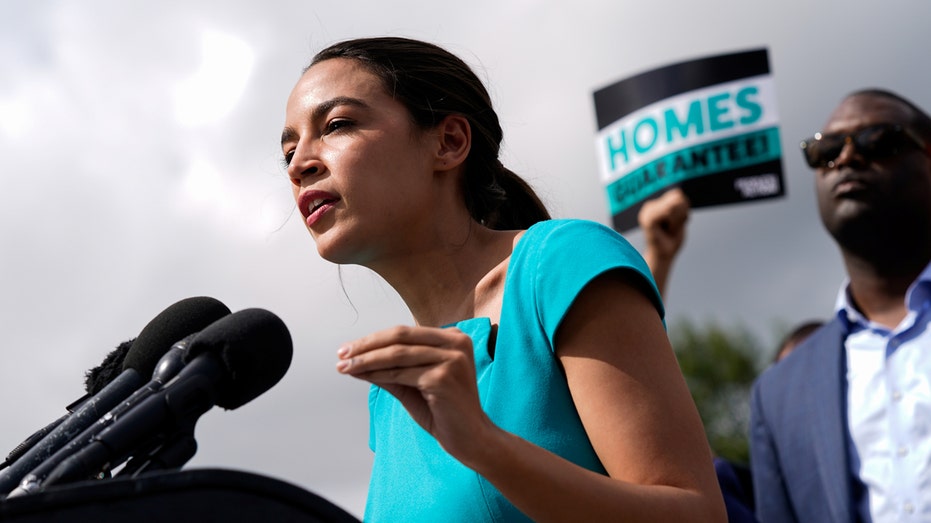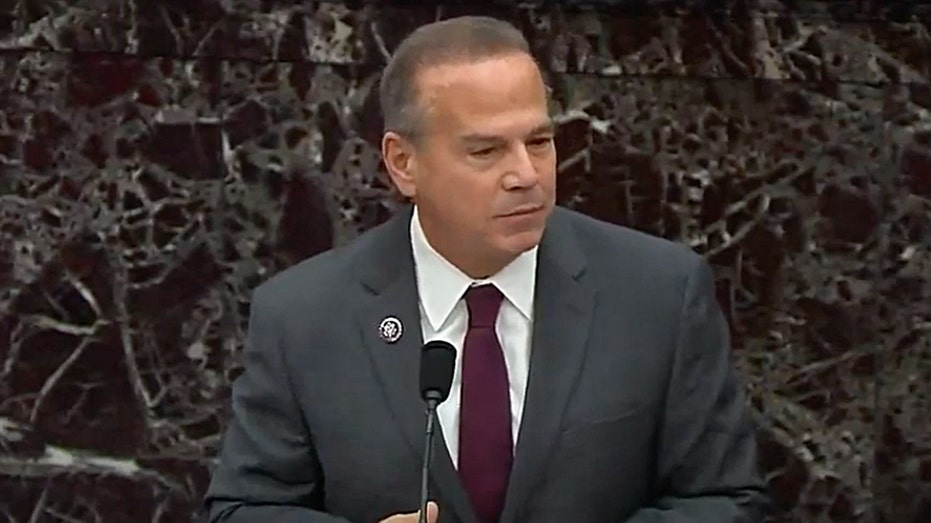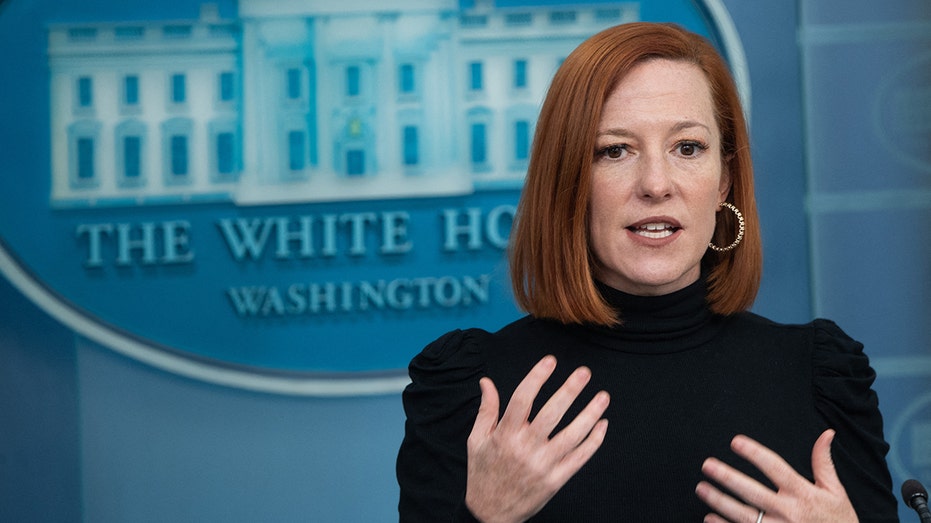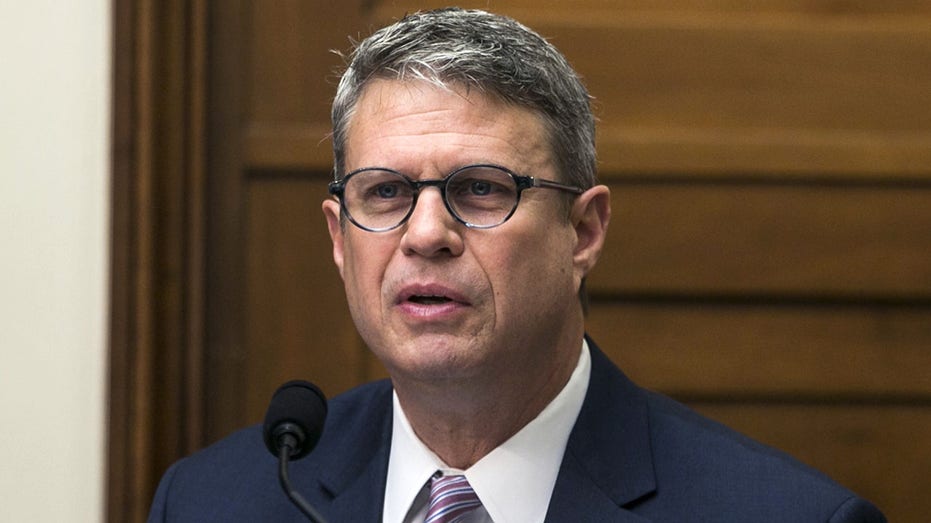AOC has allies on bid to break up Facebook
Other Democrats agree with AOC that Meta should be subjected to antitrust activity
Breaking up Facebook would make positive difference: Rep. Madison Cawthorn
Rep. Madison Cawthorn, R-N.C., discusses Facebook, Big Tech regulations and censorship on social media.
Rep. Alexandria Ocasio-Cortez isn't alone in her belief that Facebook needs a serious reboot.
The New York Democrat said in an interview with Yahoo Finance published Tuesday that Meta – formerly known as Facebook – should be broken up because it has too many assets built into one company.
"Facebook should be broken up," Ocasio-Cortez said. "We should pursue antitrust activity on Facebook."

U.S. Representative Alexandria Ocasio-Cortez (D-NY) speaks during a news conference discussing the introduction of rent legislation outside the U.S. Capitol in Washington, U.S., September 21, 2021. REUTERS/Elizabeth Frantz (Reuters Photos)
"They are acting as an advertiser, they are acting as both platform and vendor, they are … a communications platform, which has historically been a well-established domain of antitrust," she said in the interview.
AOC SAYS FACEBOOK 'SHOULD BE BROKEN UP,' 'SUBJECT TO ANTITRUST ACTIVITY'
Rhode Island Democratic Rep. David Cicilline, the chair of the House Judiciary Committee's Antitrust Subcommittee, echoed a similar tune back in July at the end of a congressional hearing with the CEOs of Facebook, Amazon, Apple and Google.
"This hearing has made one fact clear to me—these companies as they exist today have monopoly power," Cicilline said following the July 29 hearing. "Some need to be broken up; all need to be properly regulated and held accountable."

Rep. David Cicilline, D-R.I.
Washington Democratic Rep. Pramila Jayapal, the chair of the Congressional Progressive Caucus, also said Congress must take action against Facebook.
"It could not be more clear that unregulated tech giants like Facebook, Amazon, Google, and Apple have become too big to care and too powerful to put people over profits," Jayapal, who serves on the House Judiciary Committee, said in a statement to FOX Business Friday. "We can’t stand by while big tech dominates small businesses with monopolistic practices.
"We need legislation, like my bipartisan Ending Platform Monopolies Act, to rein in their anti-competitive behaviors and support fairness and innovation," Jayapal said.
In June, after a marathon markup, the House Judiciary Committee passed a package of bills aimed at reining in Big Tech and making it easier to break up tech giants. Among the bills that passed were Jayapal's Ending Platform Monopolies Act to curb anti-competitive behaviors.

Rep. Pramila Jayapal, D-Wash., the chair of the Congressional Progressive Caucus, center, along with other lawmakers, talks with reporters outside the West Wing of the Washington, Tuesday, Oct. 19, 2021, following their meeting with President Joe Bid (AP Newsroom)
But a bipartisan group of lawmakers from California – where tech companies have created many jobs –- couldn't support the package of six bills.
Rep. Zoe Lofgren, D-Calif., said in a joint statement that reforms would "radically change America’s leading tech companies" and pose "harm to American consumers and the U.S. economy." She's proposed online privacy legislation.
The antitrust Big Tech legislation has not yet passed the full House.
For his part, Biden has pressed for more scrutiny of Big Tech companies and signed an executive order in July aimed at cracking down on anti-competitive behavior.
White House Press Secretary Jen Psaki said during a January news conference that "the president has been very clear in his view that we need more competition in the tech industry." She said Big Tech's "power gives them unfair opportunities" over small businesses.
BIDEN TARGETS BIG TECH IN SWEEPING NEW EXECUTIVE ORDER CRACKING DOWN ON ANTI-COMPETITIVE PRACTICES
In the last decade, the largest tech platforms have acquired hundreds of companies, "including alleged killer acquisitions meant to shut down a potential competitive threat, that’s not a healthy place for the system," Psaki said.

White House Press Secretary Jennifer Psaki speaks during the daily briefing in the Brady Briefing Room of the White House in Washington, D.C., on January 21, 2022. (Photo by SAUL LOEB/AFP via Getty Images) (Getty Images)
The Senate is also taking steps to tackle some Big Tech abuses. The Senate Judiciary Committee Thursday advanced bipartisan legislation that would rein in Apple and Google's app stores, with lawmakers saying the tech giants are wielding too much market power.
In October 2020, the House Judiciary Committee’s Antitrust Subcommittee released findings of its more than 16-month long investigation that found Apple, Amazon, Google and Facebook have expanded and exploited their power in anti-competitive ways and should be subjected to new antitrust enforcement actions.
APP-STORE BILL TARGETING APPLE, GOOGLE IS APPROVED BY SENATE PANEL
"Our investigation leaves no doubt that there is a clear and compelling need for Congress and the antitrust enforcement agencies to take action," Cicilline and Judiciary Committee Chairman Jerrold Nadler said in a statement announcing the findings.
Republicans and Democrats alike have raised concerns about the power of Big Tech, but they have diverged at times on the best solutions. Conservatives have honed in on censorship issues, such as kicking former President Trump off of platforms, whereas Democrats have been critical of Facebook for not doing more to stop the spread of disinformation.

Representative Bill Huizenga, a Republican from Michigan and chairman of the House Capital Markets, Securities, and Investment Subcommittee, speaks during a hearing in Washington, D.C. (Zach Gibson/Bloomberg via Getty Images / Getty Images)
Rep. Bill Huizenga, R-Mich, is a member of the House Republican Big Tech task force and said AOC's suggestion of breaking up Facebook is "worth the conversation."
He hasn't backed that approach personally, but he's floated the idea of regulating Big Tech much like a utility company.
CLICK HERE TO GET FOX BUSINESS ON THE GO
"How would we feel if there was a phone company or an electric company that decided that it just simply wasn't going to serve one section of town because of the thought process of those people," said Huizenga, in making an analogy to conservative censorship.
"To me, breaking them up is a different question than regulating them as a utility," Huizenga said. "We don't force the phone company to get broken up or force the gas company to divest … we just then regulate how they operate.
"[It's] maybe two different sides of the same coin or same objective here, but it's certainly worth the conversation," he said.




















